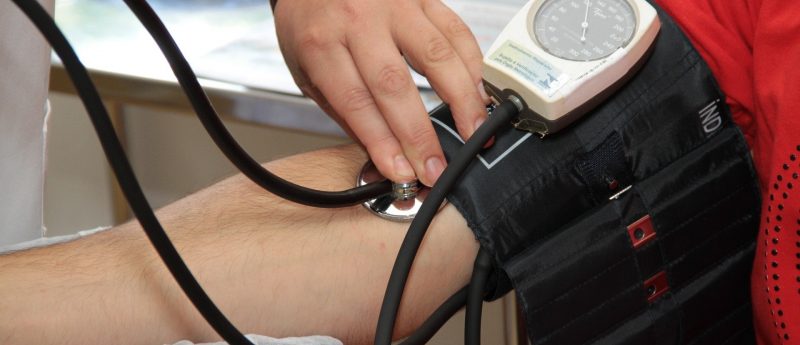Serious risks associated with increasing hypertension medications at hospital discharge

New research suggests that increasing blood pressure medications at the time of hospital discharge of elderly patients may be associated with increased risk of serious adverse outcomes including syncope, falls and acute kidney injury.
It can be common for clinicians to increase elderly patients’ hypertensive medication doses at their time of hospital discharge. However, a new study, conducted by researchers from the University of California, San Francisco (UCSF) and the affiliated San Francisco Veteran Affairs Health Care System (both CA, USA), suggests that this practice may result in patients’ increased risk of suffering adverse events — such as greater fainting and fall risks.
During hospitalization, patients’ blood pressure is strictly and regularly assessed. Previous research observed that clinicians were more likely to increase doses of patients’ hypertensive treatments, or provide supplementary antihypertensives, after noting patients’ blood pressure fluctuations due to pain, stress, anxiety and/or exposure to new medications while in hospital.
However, in this new study, researchers observed no benefit to patients’ discharge with intensified hypertensive medications on patients’ cardiovascular health and blood pressure control during the year following their discharge. A total of 4056 veteran patients over the age of 65 — who were hospitalized for non-cardiac related incidents between 2011 and 2013 — and who presented with high blood pressure prior to hospitalization, were included in the study.
Concurrently, however, patients’ risks of hospital readmission and/or suffering serious adverse events — including falls, fainting and acute kidney injury — in the 30-day period following hospital discharge on intensified antihypertensive treatments were found to increase.
30 days following initial hospital discharge, patients’ risks of re-admission or suffering medication-related adverse events were 21.4% and 4.5% respectively amongst those on intensified blood pressure treatments at their time of discharge. By contrast, these risks were 17.7% and 3.1% respectively for patients not on such intensified medications.
Timothy Anderson, a primary care Research Fellow in the Division of General Internal Medicine at UCSF and lead study author, commented: “Blood pressure management is about long-term control, but during hospitalization, patients’ blood pressure can be temporarily elevated in response to illness and stress…Our findings suggest that making medication changes during this period is not beneficial.”
Instead, Anderson continued: “…deferring medication adjustments to outpatient doctors to consider once patients are recovered from their acute illness is likely to be a safer course.”
The authors caution that the results of this study apply strictly to the patient cohort evaluated; the same trends may not be extrapolatable to patients hospitalized for cardiac-related events, for example. Further investigation is also required to assess the benefits of such medication alterations on patients’ control of other conditions, such as diabetes.
Sources:
Anderson TS, Jing B, Auerbach A et al. Clinical Outcomes After Intensifying Antihypertensive Medication Regimens Among Older Adults at Hospital Discharge. JAMA Intern Med. doi:10.1001/jamainternmed.2019.3007 (Epub ahead of print) (2019);
